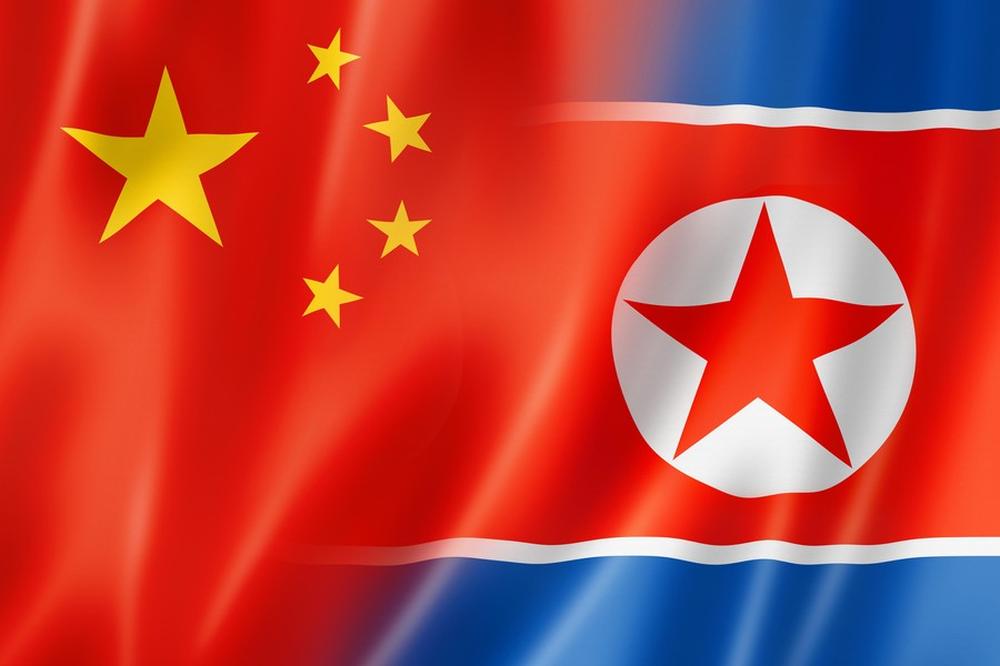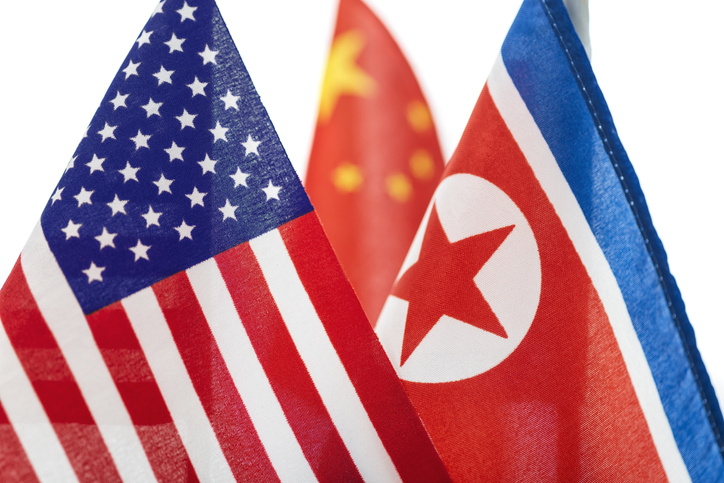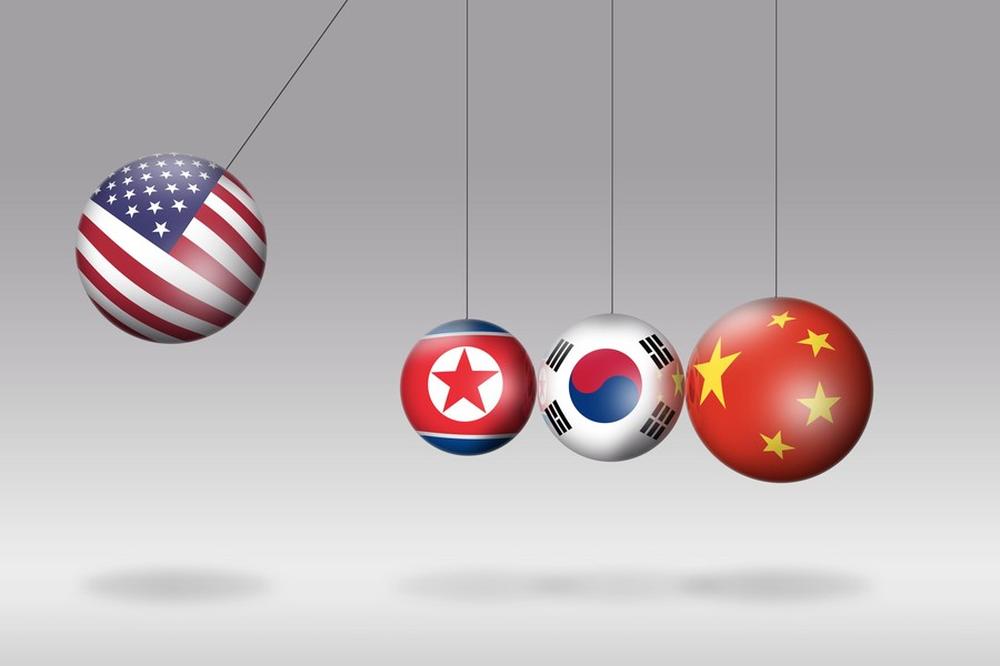
► China has been a proponent of North Korean denuclearization. However, given the unstable domestic situation, combined with the uncertainty resulting from its competition and conflict with the United States, China’s view is that any sudden changes on the Korean Peninsula will further complicate the situation.
► For China, maintaining the status quo while maintaining and improving its strategic position on the Korean Peninsula may be its most important task. Therefore, it is difficult for Korea to expect China to play the role of a facilitator or an active mediator that will actively support North Korea’s denuclearization and the establishment of a peace regime on the peninsula.
► Korea now faces daunting tasks of mediating US-DPRK negotiations as well as convincing China to play a more positive role in dealing with North Korea.
North Korea has pleaded that it is facing a “difficult situation akin to war” caused by prolonged economic sanctions, border shutdown to deal the pandemic, and natural disasters. During this unprecedented situation, North Korea and China opened up the possibility of resuming bilateral trade as the two leaders exchanged congratulatory messages on the 60th anniversary of the Treaty of Friendship, Cooperation and Mutual Assistance, and re-affirmed their historic friendly relations. According to the General Administration of Customs of the People’s Republic of China (GACC), North Korea’s import of Chinese goods in June rebounded to around 12 million dollars. However, since this figure only accounts for 6% of total imports in June 2019—prior to the outbreak of COVID-19—it is difficult to conclude that their bilateral trade relations have returned to normal. On July 1, First Secretary Kim Jong-un sent his congratulatory message to President Xi Jinping to mark the 100th anniversary of the Chinese Communist Party. In his message, Kim launched scathing criticisms of the United States, which had proposed the resumption of dialogue, and stressed his full support for China and stressed the importance of North Korea’s friendly relations with China. He stated that “hostile forces’ vicious slander and all-round pressure upon the Chinese Communist Party are no more than a last-ditch attempt.” Faced with serious threats from COVID-19 and the ongoing economic crisis, North Korea appears to be focusing on domestic control and improved relations with China rather than hastily walking into unpredictable and uncertain negotiations with the United States. By emphasizing North Korea’s socialist connection with China, North Korea appears to be consolidating the regime’s support base as well as trying to receive cooperation and support from China to deal with more immediate concerns. At this moment, concerns over the resurgence of COVID-19 appear unabated and, as a result, North Korea has been unable to open is borders. By maintaining close relationship with China, North Korea is leaving the door open for the possibility of resuming trade with its neighbor depending on how the situation unfolds.
During North Korea’s “arduous march” in the late 1990s, China provided strategic resources to the North so that the latter could overcome the economic crisis. At the time, Sino-DPRK relations were at its nadir as a result of China’s decision to normalize relations with the Republic of Korea. Even summit meetings between the Chinese and North Korean leaders, which had taken place regularly, were suspended. However, Sino-DPRK relations recovered when China decided to supply North Korea with minimum resources in order to address security concerns stemming from a potential collapse of the North Korean regime. During the North Korean nuclear crisis, China is also known to have provided economic aid to North Korea in hopes of bringing North Korea back to the negotiating table. In order to convince North Korea to participate in the second Six-Party Talks, Wu Bangguo, Standing Committee Chairman of the National Popular Representative Council, visited the North in October 2003 and promised to provide the North with 50 million dollars. While China remained adamant that its aid to the North had nothing to do with North Korea’s return to the Six-Party Talks, it confirmed in January 2004 that it had indeed provided funds to North Korea and that discussions over the use of these funds were ongoing. During Kim Yong-nam’s visit to China in 2004, China promised additional economic aid, hoping that this would be enough to convince North Korea to participate in the fourth iteration of the Six-Party Talks. With China recently resuming its economic aid to North Korea, discussions about whether China can play the role of a mediator to convince North Korea back to negotiations must incorporate close examinations of the past. China’s transformation into an active mediator since 2003 has much to do with the Bush administration’s attack on Iraq. The attack on Iraq raised Chinese concerns that North Korea could become the next target. The Six-Party Talks were also led by China, which pushed China to play a more active role. There were also times when China utilized sticks—in addition to carrots in the form of economic assistance—to deal with North Korea. Following North Korea’s sixth nuclear test in September 2017, China, unlike in the past, quickly joined the rigorous international economic sanctions regime. There were reports of the Trump administration considering the idea of a “bloody nose” pre-emptive strike against the North.
In 2003 and 2017, China showed two sides of its approach vis-à-vis North Korea. In 2003, it took on a mediating role that encouraged North Korea to participate in dialogue while in 2017, it joined the international sanctions regime to punish the North. These two instances share a commonality: these were times when tensions on the Korean Peninsula were intensifying and the possibility of U.S. military actions against the North was increasing. In other words, when tensions on the Korean Peninsula were rising, China used both pressure and engagement tactics to bring North Korea back to the negotiating table. It also took up a limited role by investing minimum resources needed to reduce tensions. At the same time, China has exercised great caution, making sure that it does not pressure North Korea to the point where the North Korean regime, the security environment, and Sino-DPRK relations are threatened. From China’s perspective, a threat to the North Korean regime is a threat to stability on the Korean Peninsula. In reality, China has insisted consistently that the ultimate objective of the rigorous international sanctions regime following North Korea’s 6th nuclear test was dialogue. During the ministerial meeting of the ASEAN Regional Forum, Chinese Foreign Minister Wang Yi stated that “the U.S. should not take measures that can raise tensions if it really wants to resume talks with North Korea” and that the “joint military exercise between South Korea and the U.S. is not constructive.” This statement can be interpreted as China’s way of supporting North Korea’s stance on the joint military exercises and, at the same time, displaying its traditional policy towards the United States. China’s response to the failure of the US-DPR negotiations in Hanoi follow this same patter. Even though the Hanoi meeting ended abruptly with a “no deal,” China did not seek to become the mediator, similar to 2003 when it launched diplomatic efforts to resume dialogue. While China does not want the failure of US-DPRK negotiations to cause further tensions on the Korean Peninsula, it remains cautious to the possibility that rapid progress between the U.S. and North Korea could lead to the establishment of a peace regime and challenge the status quo on and around the Korean Peninsula.
Over the past 28 years, China has expanded its role in the North Korea issue. Much of this aligns well with its path to becoming a global superpower. It is for this reason that China has come to prioritize the “U.S. factor” in dealing with North Korea. It has maintained the position that North Korea’s nuclear issue must be resolved between the United States and North Korea. By taking this stance, it has been able to support North Korea’s position and, at the same time, avoid the possibility of engaging in conflict with the United States over North Korea. China’s relationship with the United States, stability of the North Korean regime, and the security environment on the Korean Peninsula have played, in varying degrees, important factors influencing Chinese decisions. However, the policy of maintaining a geopolitical buffer vis-à-vis North Korea has always been a centerpiece of Chinese foreign policy. Wang Yi’s call during the ministerial meeting of the ARF for the snapback provision in the UN economic sanctions resolutions that would allow temporary sanctions relief is a diplomatic move to support North Korea’s position and, simultaneously, send a message that it is unwilling to go against the sanctions regime and, and in the process, risk US-China relations from worsening.
In short, China has been a proponent of North Korean denuclearization. However, given the unstable domestic situation, combined with the uncertainty resulting from its competition and conflict with the United States, China’s view is that any sudden changes on the Korean Peninsula will further complicate the situation. For China, maintaining the status quo while maintaining and improving its strategic position on the Korean Peninsula may be its most important task. Therefore, it is difficult for Korea to expect China to play the role of a facilitator or an active mediator that will actively support North Korea’s denuclearization and the establishment of a peace regime on the peninsula. Korea now faces daunting tasks of mediating US-DPRK negotiations as well as convincing China to play a more positive role in dealing with North Korea.
Dr. Dong Ryul Lee is a professor of Chinese diplomacy at Dongduk Women's University in Seoul, South Korea. He received his B.A. in Chinese Studies and M.A. in Asian Studies from Hankuk University of Foreign Studies and his PhD form Beijing University. He is Currently the Editorial Committee Chairman of the Chinese Society of Hyundai. In 2009, he was the Research Director of the Korean Society for World Studies and the Editor-in-Chance of the Chinese Studies Society from December 2006 to December 2009. Prior to that, he was a visiting professor at Columbia University from August 2005 to August 2006. He has been a member of the Modern Chinese Society since 2000 and a member of the Korean Political Society since 1997.


